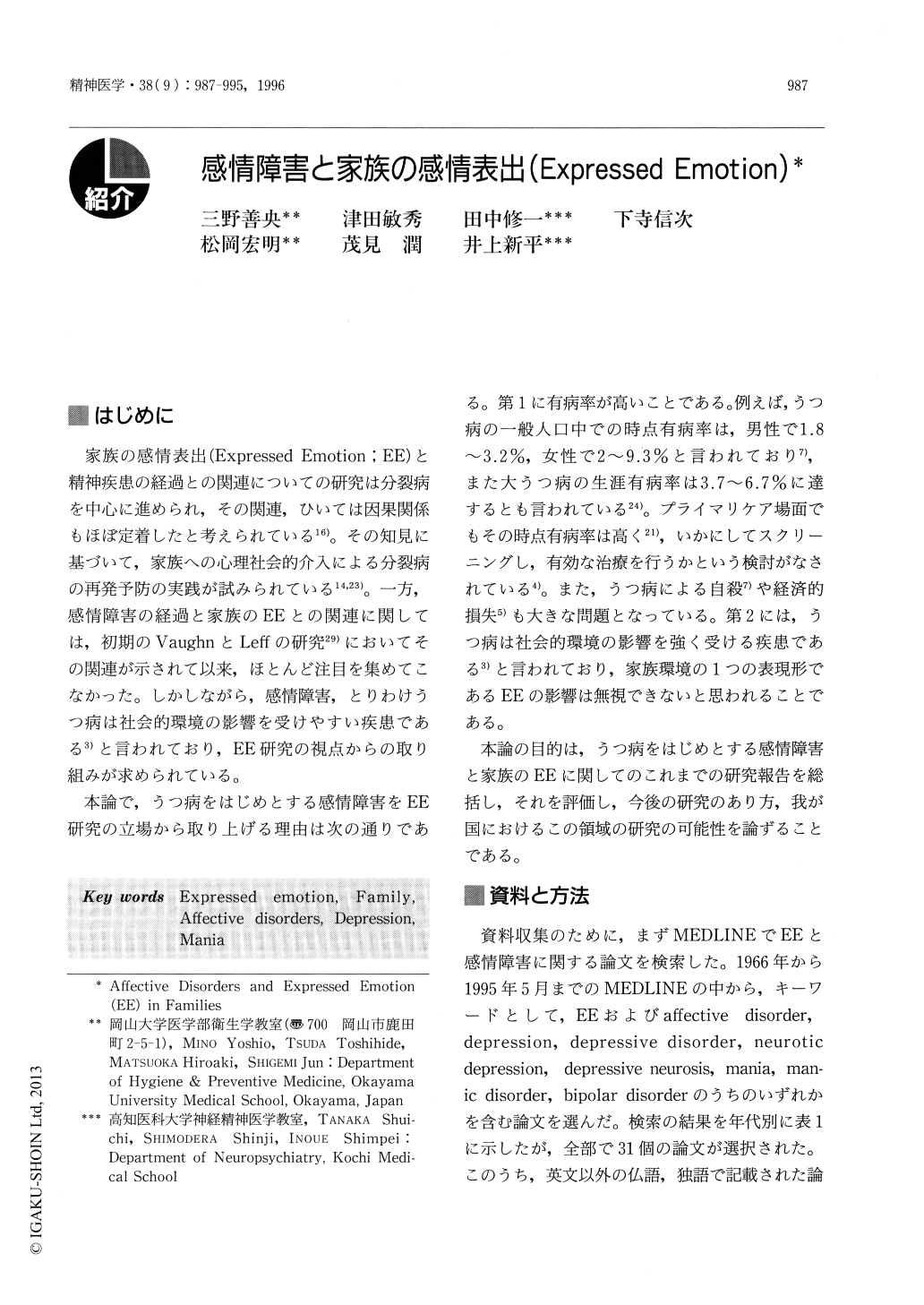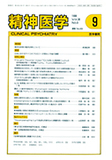Japanese
English
- 有料閲覧
- Abstract 文献概要
- 1ページ目 Look Inside
■はじめに
家族の感情表出(Expressed Emotion;EE)と精神疾患の経過との関連についての研究は分裂病を中心に進められ,その関連,ひいては因果関係もほぼ定着したと考えられている16)。その知見に基づいて,家族への心理社会的介入による分裂病の再発予防の実践が試みられている14,23)。一方,感情障害の経過と家族のEEとの関連に関しては,初期のVaughnとLeffの研究29)においてその関連が示されて以来,ほとんど注目を集めてこなかった。しかしながら,感情障害,とりわけうつ病は社会的環境の影響を受けやすい疾患である3)と言われており,EE研究の視点からの取り組みが求められている。
本論で,うつ病をはじめとする感情障害をEE研究の立場から取り上げる理由は次の通りである。第1に有病率が高いことである。例えば,うつ病の一般人口中での時点有病率は,男性で1.8〜3.2%,女性で2〜9.3%と言われており7),また大うつ病の生涯有病率は3.7〜6.7%に達するとも言われている24)。プライマリケア場面でもその時点有病率は高く21),いかにしてスクリーニングし,有効な治療を行うかという検討がなされている4)。また,うつ病による自殺7)や経済的損失5)も大きな問題となっている。第2には,うつ病は社会的環境の影響を強く受ける疾患である3)と言われており,家族環境の1つの表現形であるEEの影響は無視できないと思われることである。
本論の目的は,うつ病をはじめとする感情障害と家族のEEに関してのこれまでの研究報告を総括し,それを評価し,今後の研究のあり方,我が国におけるこの領域の研究の可能性を論ずることである。
The aim of this study was to determine whether Expressed Emotion (EE) status of families is associated with an increased risk of relapse or the onset of affective disorders including depression, mania, and bipolar disorder, analyzing published literature. Materials were collected from MED-LINE using EE and affective disorders, depression, depressive disorder, neurotic depression, depressive neurosis, mania, manic disorder, or bipolar disorder as key words. The number of retrieved papers was 31, of which 14 were excluded because they were thought to be less associated with affective disorders and EE, or because they were not written in English. Four papers which were related to EE were also included in the study from the authors' data-base. Consequently, 21 papers were analyzed and categorized by the themes. There were more papers about the themes of depression in adult and childhood affective disorders. As to the association between EE and depressive relapse, all three studies confirmed the finding. A positive relationship between EE and relapse in mania or bipolar disorder was observed in two series of studies. Replication studies with a larger number of subjects are required and should be reported from various cultural backgrounds. EE is considered to be related to the course of child affective disorders. However, EE's etiological role in affective disorders remains elusive.

Copyright © 1996, Igaku-Shoin Ltd. All rights reserved.


